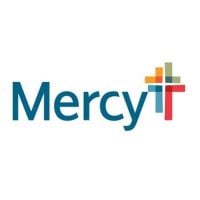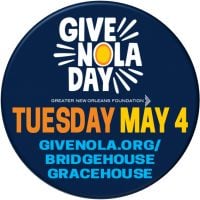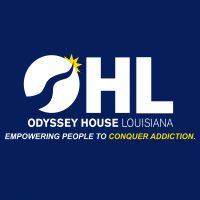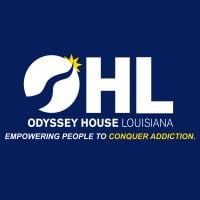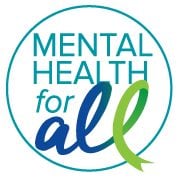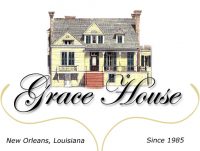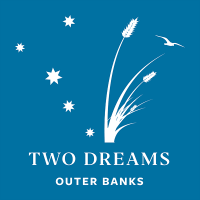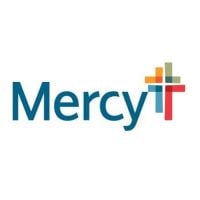Healing Hearts for Community Development
Drug Rehab Center in Metairie, Louisiana
Healing Hearts for Community Development is a treatment facility in Louisiana that provides personalized support and care for individuals struggling with addiction and mental health issues, utilizing evidence-based therapies and holistic practices, while also offering family services and being accredited and licensed by reputable agencies.
Multiple patients have reported Healing Hearts for Community Development as permanently closed.
Research other rehabs in Metairie, Louisiana, or get help finding an open facility.
About Healing Hearts for Community Development in Louisiana
Healing Hearts for Community Development, a faith-based non-profit organization located in Metairie, Louisiana, is dedicated to providing help, hope, and healing to individuals and families through mental health counseling, substance abuse treatment, and prevention programming. With a focus on Christian trauma counseling and addiction services, Healing Hearts aims to make a positive impact on the lives of those struggling with various challenges.
• Accredited by CARF, the Commission on Accreditation of Rehabilitation Facilities, ensuring high-quality care
• Offers a range of treatment services, including aftercare support, drug rehab, intensive outpatient, outpatient, and detox
• Provides evidence-based treatment plans tailored to meet the individual needs of clients
• Incorporates educational and supportive activities to help clients build a positive lifestyle and cope with the challenges of recovery
Healing Hearts for Community Development is staffed by a highly experienced treatment team, including clinicians, therapists, and counselors who work together to ensure the best possible outcomes for their clients. The facility accepts private health insurance, making their services more accessible to those in need.
The facility treats a wide range of addictions, such as alcoholism, drug addiction, and substance abuse, as well as co-occurring mental health disorders. Their comprehensive approach to treatment addresses the physical, psychological, and social aspects of addiction through individual counseling, family counseling, group therapy, medication management, and relapse prevention planning.
Genders
Ages
Modality
Additional
Accreditations

CARF
The Commission on Accreditation of Rehabilitation Facilities (CARF) is a non-profit organization that specifically accredits rehab organizations. Founded in 1966, CARF's, mission is to help service providers like rehab facilities maintain high standards of care.
Conditions and Issues Treated
Levels of Care Offered
This center offers a variety of custom treatment tailored to individual recovery. Currently available are Aftercare Support, Drug Rehab, Intensive Outpatient, Outpatient, with additional therapies available as listed below.
Outpatient addiction treatment is beneficial for people who are able to function well in their day-to-day lives. It is recommended for people who are not yet ready to end their relationships with friends or family members who might be encouraging drug and alcohol use.
Intensive outpatient treatment is beneficial for:
- People who are able to attend treatment more than 3 times per week.
- People who do not meet the criteria for inpatient treatment.
- People who are able to contribute to their own recovery outside of the treatment center.
- People who are motivated towards recovery.
- People who are able to overcome addiction on their own without the need for higher levels of care.
Outpatient programs at Healing Hearts for Community Development, the Metairie resident can live with their family while continuing with their job or studies. Treatment includes educating the patient on drug abuse, medications, and counseling sessions at the individual or group level. Outpatient treatment plans cover diagnosis, detoxification, management, and counseling. They are a popular option for those who have graduated from inpatient facilities.
Without aftercare support, addicts can easily relapse back into addiction. It is crucial to integrate the addict back into society. Aftercare support should take place after outpatient treatment has ended.
There are a few different types of aftercare support that patients can seek after completing an inpatient treatment program:
- 12 Step Self-help groups (AA, NA)
- Therapeutic communities,
- Long-term, structured sober living arrangements
- Halfway houses (residential treatment centers)
Many different support groups exist for addicts to seek help after treatment. Some are more effective than others, depending on the person’s addiction, background, and other factors.
Therapies & Programs
Individual therapy is a form of counseling where you meet with a trained professional one-on-one. Meeting with a therapist in this setting allows for a personal and trusting relationship to be built. This allows the patient to open up about sensitive or private issues they may not feel comfortable discussing in a group. Individual therapy helps identify the root causes of your addiction, which can help prevent relapse.
Couples therapy for drug addiction is a unique form of therapy that allows family members to work through the emotional issues of their loved one’s addiction together. Family members can support each other while learning how to cope with the addiction and encourage healthy changes. The two will work with a therapist to learn how the addiction affects themselves and the relationship.
Family therapy is often done alongside drug treatment to help addicts stay sober. The goal of family therapy for drug addiction is to create an environment where communication can happen without judgment, hostility, or blame. The therapist will sit with the family so they can learn how to communicate differently and provide new tools for dealing with emotions so that people don’t want to drink or do drugs. It’s important for families to focus on relapse prevention plans during treatment so that if the addict feels like they want to use again, they’ll know what steps they need to take together to prevent it from happening again in the future.
Group therapy sessions are another common addiction recovery service. These group sessions typically involve six to 12 addicts who meet regularly with a trained professional for support and guidance.
During these sessions, the group shares their experiences with one another and provides feedback that can help each member avoid relapse or overcome specific obstacles they are facing in their recovery process. With this type of support and guidance, addicts can feel like they are part of a community that understands their struggles and will help them get through the hard times.
Many people struggling with drug addiction have experienced some form of trauma in their lives. It is crucial that these individuals seek out professional help; otherwise, their drug abuse and addiction will likely continue.
Therapists and counselors at drug treatment centers employ several treatment programs to help people struggling with drug addiction, including trauma therapy. Trauma therapy helps people dealing with addiction by allowing them to confront the traumas of their past and move past them.
It is important to note that trauma therapy should not be confused with PTSD (post-traumatic stress disorder). Rather, it is used to treat the effects of trauma, which are often at the root of addiction.
Cognitive Behavioral Therapy (CBT) focuses on the underlying thoughts and behaviors that caused the problem of addiction in the first place and may cause a relapse. Negative feelings are common in drug abuse disorders, but they can lead to co-occurring disorders if not recognized. CBT involves strategies that help to change the behavior pattern by restructuring negative thoughts into positive ones. It helps to remove these feelings, and it provides long-term benefits. Also, CBT promotes self-awareness and self-control. It can be administered as a monotherapy or as part of combination therapy.
CBT can improve the patient’s mood, reduce drug cravings and boost success rates on treatment plans. Regular practice can help individuals handle negative attitudes, thoughts, and feelings without turning to drugs or alcohol. The core belief of Cognitive Behavioral Therapy (CBT) is that one’s moods, behaviors, and actions are all connected. Individuals can improve their quality of life using CBT. It helps addicts understand the patterns of thought and feelings that cause them to use drugs or alcohol and develop a healthy response.
Payment Options Accepted
For specific insurance or payment methods please contact us.
Is your insurance accepted?
Ask an expert, call (888) 674-0062
Additional Details
Specifics, location, and helpful extra information.
Metairie, Louisiana 70001 Phone Number(504) 833-4673 Meta DetailsUpdated April 15, 2024
Staff Verified
Healing Hearts for Community Development Patient Reviews
There are no reviews yet. Be the first one to write one.
Metairie, Louisiana Addiction Information
Louisiana is one of the top ten states in the nation for opioid-related deaths. One in ten high school students admits to regularly using prescription opioids for non-medical purposes. More than 225,000 Louisiana residents admit to regular heavy drinking and around 6% of the Louisiana population abuses alcohol. Marijuana use in Louisiana is most common amongst teenagers between the ages of 12 and 17 years old.
In Metairie, Louisiana, there were 9.4 drug overdose deaths per 100,000 people in 2016. Marijuana is Metairie's most commonly used drug, followed by prescription painkillers and cocaine. Drug addiction and abuse can also lead to lost productivity and economic problems. There are also several rehab centers in Metairie, LA, that can help people overcome their addiction. Some common treatments include 12-step programs, cognitive-behavioral therapy, or motivational enhancement therapy.
Treatment in Nearby Cities
- Leesville, LA (202.3 mi.)
- Lacombe, LA (26.4 mi.)
- Morgan City, LA (66.4 mi.)
- Duson, LA (123.3 mi.)
- Oberlin, LA (162.5 mi.)
Centers near Healing Hearts for Community Development
The facility name, logo and brand are the property and registered trademarks of Healing Hearts for Community Development, and are being used for identification and informational purposes only. Use of these names, logos and brands shall not imply endorsement. RehabNow.org is not affiliated with or sponsored by Healing Hearts for Community Development.



